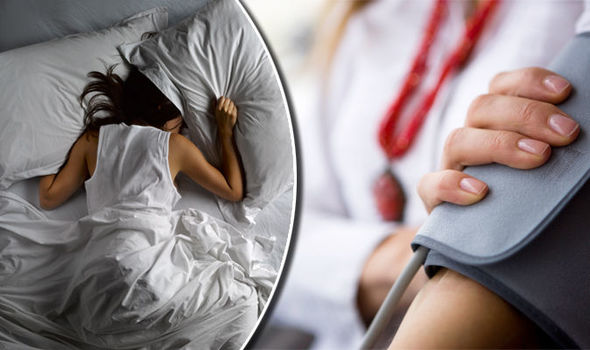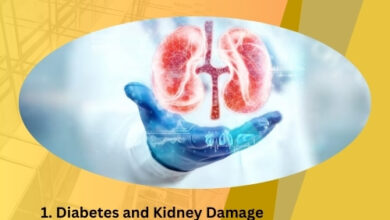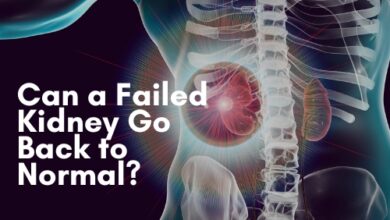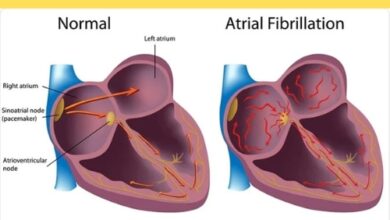How High Blood Pressure and Insomnia May Be Related: Exploring the Connection

High Blood Pressure and Insomnia
High blood pressure (HBP) and insomnia may be related in more ways than you think. Although there is no known direct link between the two, individuals with HBP can experience difficulty sleeping due to hormonal changes, increased stress, and elevated heart rate. Likewise, people who suffer from insomnia can find that their condition leads to higher blood pressure levels as well as other long-term health complications. In this article, we’ll explore how high blood pressure and insomnia are connected with a risk of developing other conditions such as stroke and heart disease. We’ll also provide tips on how to reduce your risk of high blood pressure by getting adequate sleep each night.
What is High Blood Pressure?
High blood pressure (HBP) is when the force of the blood pushing against artery walls is too high. This can lead to a range of problems if left untreated, including stroke, heart attack, kidney failure and vision loss. It is important to note that HBP can be caused by various factors such as obesity, smoking, lack of exercise or simply age-related factors like family history or genetics.
Related article: Hypertension High Blood Pressure Symptoms, Causes, Risk Factors, Diagnosis and Treatment
What is Insomnia?
Insomnia refers to difficulty falling asleep or staying asleep for an extended period of time. It can be caused by various underlying conditions such as anxiety, depression or even certain medications. People suffering from insomnia often feel tired during the day and may have trouble concentrating or remembering things due to lack of restful sleep at night.
Related article: Insomnia – The Health Effects Of Sleeplessness
The Connection: How High Blood Pressure and Insomnia May Be Related
High blood pressure (HBP) can lead to several issues with sleeping patterns due to hormonal changes that occur in the body when HBP occurs. These hormones can affect metabolism which in turn can cause difficulty sleeping or even an inability to fall asleep altogether. Additionally, people suffering from HBP may also experience increased stress levels which further exacerbate their symptoms related to insomnia or sleeping difficulties overall. On the other hand, those suffering from insomnia may also develop high blood pressure due to the chronic lack of sleep they experience over a sustained period of time. This means that people who do not get adequate restful sleep are more likely to develop high blood pressure than those who do get enough restful sleep each night. Furthermore, this elevated level of HBP could result in further health complications in the long run such as stroke or heart
Exploring Potential Links Between High Blood Pressure and Insomnia
Many people don’t realize that there may be a connection between high blood pressure and insomnia. Recent studies have suggested that the two can be related in some cases, making it important to understand how they interact and what can be done to address the issue.
What Causes High Blood Pressure?
High blood pressure, or hypertension, is caused by multiple factors. The most common cause is stress, which can lead to both physical and psychological distress that cause an increase in blood pressure levels. Other contributors include a lack of physical activity, poor dietary habits, and genetics. It’s often difficult to determine what exact combination of factors leads to high blood pressure in each individual situation.
How Do High Blood Pressure and Insomnia Relate?
Insomnia is a sleep disorder that makes it difficult for someone to fall asleep or stay asleep for a restful amount of time. It’s often caused by stress, but other factors like medications, diet, and environment can play a role as well. Studies have found that people with hypertension are more likely to experience insomnia than people without it. This suggests that high blood pressure itself may be causing or contributing to the condition in some cases.
Treating High Blood Pressure-Related Insomnia
The key to treating high-blood-pressure related insomnia is managing your hypertension levels with lifestyle changes or medications prescribed by your doctor. This includes eating a healthy diet, exercising regularly, getting enough sleep each night, reducing stress levels through activities such as yoga or meditation, avoiding certain medications when possible, and taking any medication prescribed for your condition as directed by your doctor. In addition, if you’re experiencing sleep disturbances related to hypertension levels then it’s important to seek advice from your doctor about further treatment options such as cognitive behavioral therapy or medications specifically designed for insomnia treatment.
Understanding the Risks Associated with High Blood Pressure and Insomnia
High Blood Pressure (HBP) and Insomnia can have significant impacts on a person’s overall health. While many people understand the individual risks associated with either condition, many are not familiar with how they could be related to each other. We’ll explore how HBP and Insomnia may be related and consider the potential risks associated with the two conditions together.
How High Blood Pressure and Insomnia May Be Related
HBP is a condition which is caused by an increased pressure in your arteries that can lead to a range of health problems if it persists for long periods of time. On the other hand, insomnia is a sleep disorder that involves difficulty falling asleep or staying asleep. It can also cause long-term fatigue and mood disturbances. The two conditions have been linked in several studies. For example, a study conducted at Harvard Medical School found that those with HBP had an increased risk of developing insomnia compared to those without HBP. Additionally, a 2017 study found that participants who reported poor quality of sleep were more likely to suffer from hypertension than those who didn’t report poor quality of sleep.
Risk Factors for High Blood Pressure and Insomnia
There are several risk factors associated with both HBP and Insomnia which could contribute to their correlation. These include:
• Age – Older individuals tend to experience higher instances of both HBP and Insomnia.
• Stress – Stress can raise blood pressure levels while also making it harder for individuals to fall asleep or stay asleep through the night.
• Lifestyle – Poor dietary habits, lack of physical activity, smoking habits, drinking alcohol or caffeine too close to bedtime can all increase an individual’s risk for both HBP and insomnia.
Managing High Blood Pressure and Insomnia
It is important for individuals who are struggling with both HBP and insomnia to take steps towards managing their conditions together in order to improve their overall health outcomes. Some tips include:
- Maintaining regular sleeping patterns by going to bed at the same time every night and rising at the same time every morning even on weekends or holidays;
- Exercising regularly
- Limiting stimulants like caffeine in the evening hours
- Keeping stress levels low by engaging in relaxation techniques such as yoga or meditation
- Eating a balanced diet full of fruits, vegetables, whole grains, lean proteins, and healthy fats
- Reducing alcohol consumption
- Avoiding large meals close to bedtime
- Consulting your doctor about any medications you may be taking which could be interfering with your ability to sleep or relaxing your blood vessels too much.
Understanding the connection between high blood pressure (HBP) and insomnia can help individuals better manage their overall health outcomes by reducing their risk for both conditions simultaneously. By engaging in healthy lifestyle practices such as maintaining regular sleeping patterns, exercising regularly, limiting stimulants before bedtime, managing stress levels through relaxation techniques as well as eating a balanced diet free from processed foods one may reduce their risk for high blood pressure (HBP) while also being able to get sufficient amounts of restful sleep which will help them maintain adequate energy levels throughout each day.
Prevention Tips for Managing High Blood Pressure and Insomnia Symptoms
It is now well understood that high blood pressure and insomnia may be related. Numerous studies have shown that both conditions can significantly contribute to each other. High blood pressure can cause insomnia, and lack of sleep can cause high blood pressure. To prevent the negative effects of these intertwined ailments, we must understand how they are linked and work to manage them accordingly. In order to prevent further issues with high blood pressure and insomnia, it is important to maintain a healthy lifestyle. Exercise regularly, eat nutritious foods, and stay hydrated to keep your body in optimal condition.
Furthermore, avoid nicotine, caffeine, alcohol and illicit drugs as these substances can interfere with your ability to regulate your sleep patterns and blood pressure levels. Additionally, make sure you practice good sleep hygiene by developing a consistent sleep schedule that allows you to get enough restful hours every night. Finally, it is essential to monitor both your blood pressure levels and sleeping patterns on a regular basis so that any potential problems or changes can be identified early on. If you notice any significant changes in either of these two areas, visit your doctor for advice on how best to address the issue. With proper prevention tips in place, you will be able to effectively manage both high blood pressure and insomnia symptoms while reducing their respective risks.
Conclusion
High Blood Pressure and Insomnia May Be Related in many ways. Although the exact connection between the two conditions is yet to be understood, research has showed that people with hypertension are more likely to suffer from sleep disturbances than their counterparts without High Blood Pressure. Similarly, studies have found that people with sleeping troubles face a higher risk of developing hypertension and other related diseases. Therefore, it is essential for individuals suffering from one of these two conditions to receive expert diagnosis and treatment in order to identify any underlying causes and reverse them. Additionally, lifestyle modifications such as exercising regularly, eating a healthy diet, avoiding alcohol and caffeine, abstaining from smoking, and adhering to a regular sleep schedule can help reduce symptoms of both High Blood Pressure and Insomnia. By understanding how these two conditions are related and taking preventive measures accordingly, individuals can lead healthier lives.




